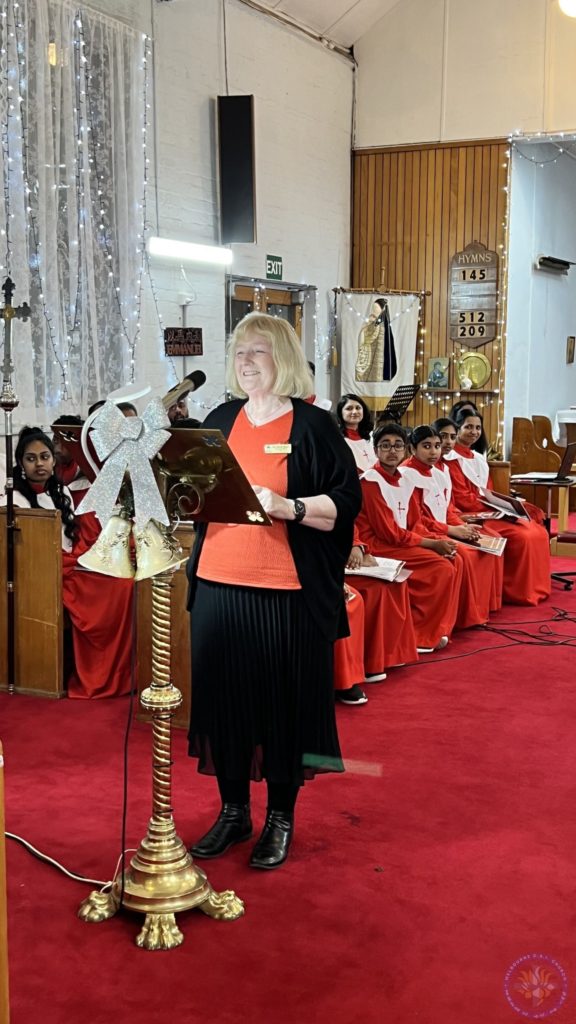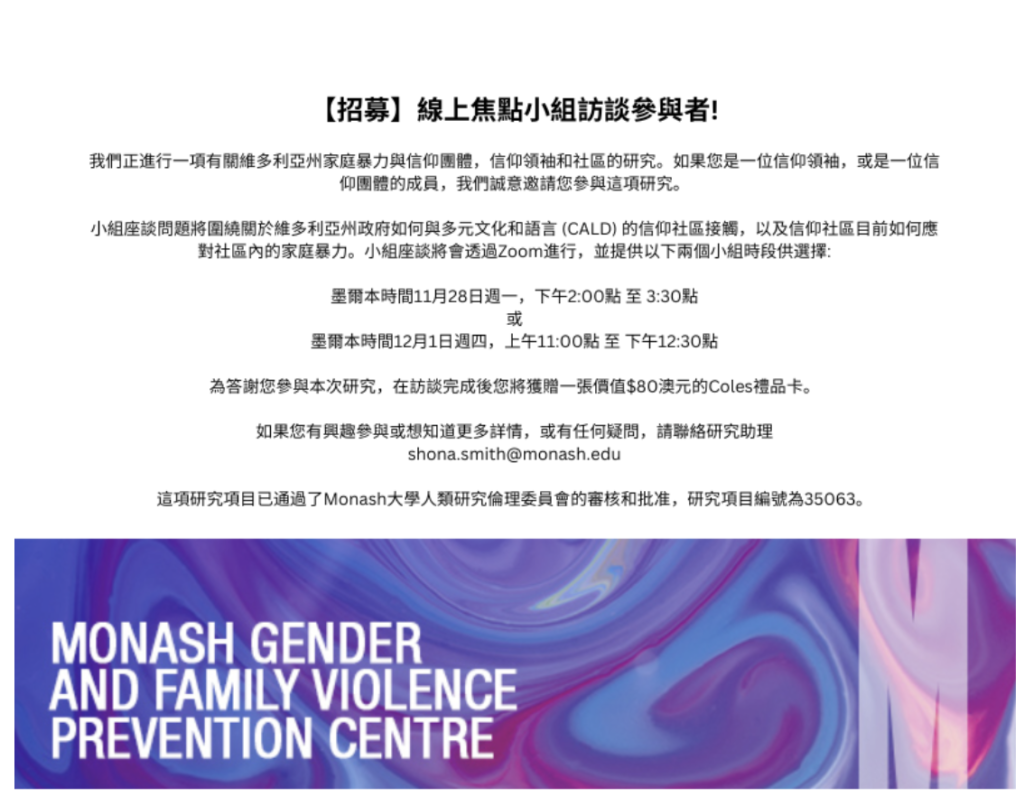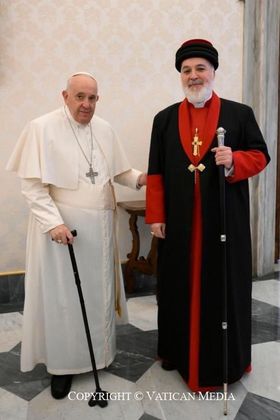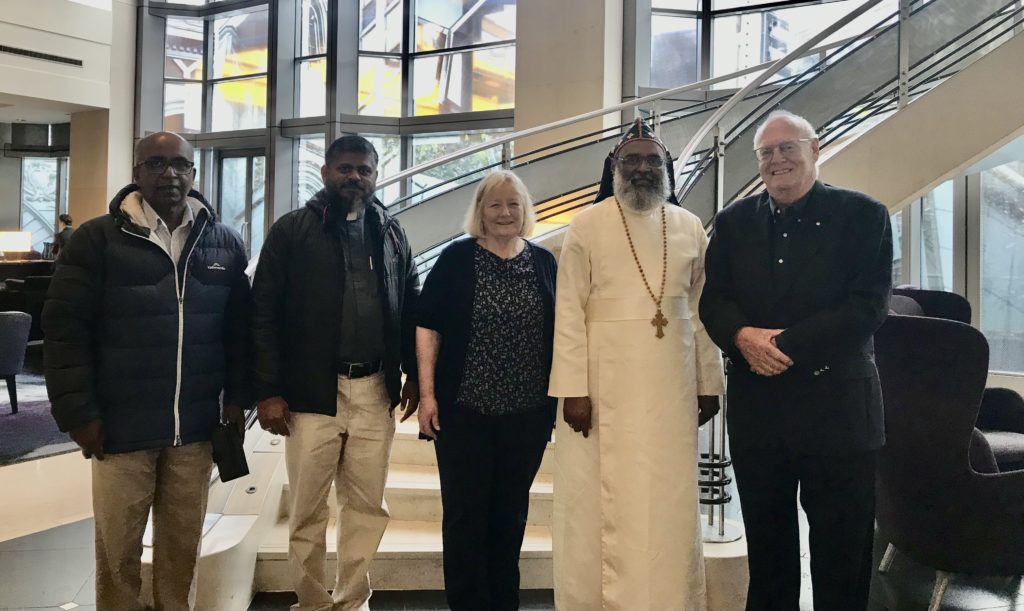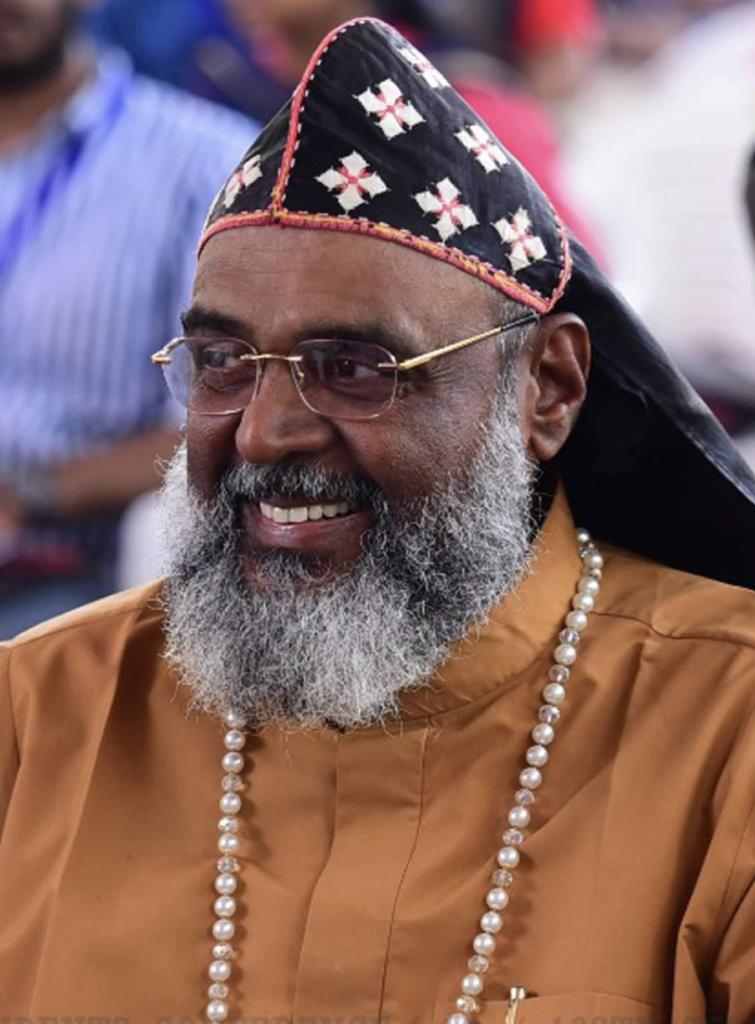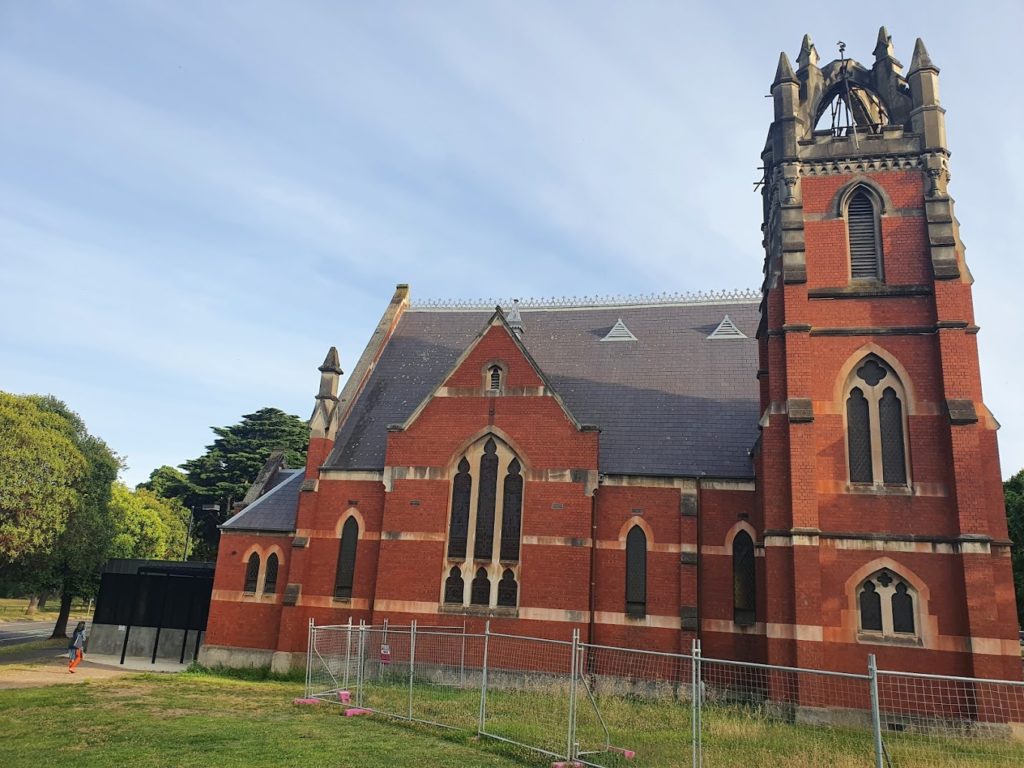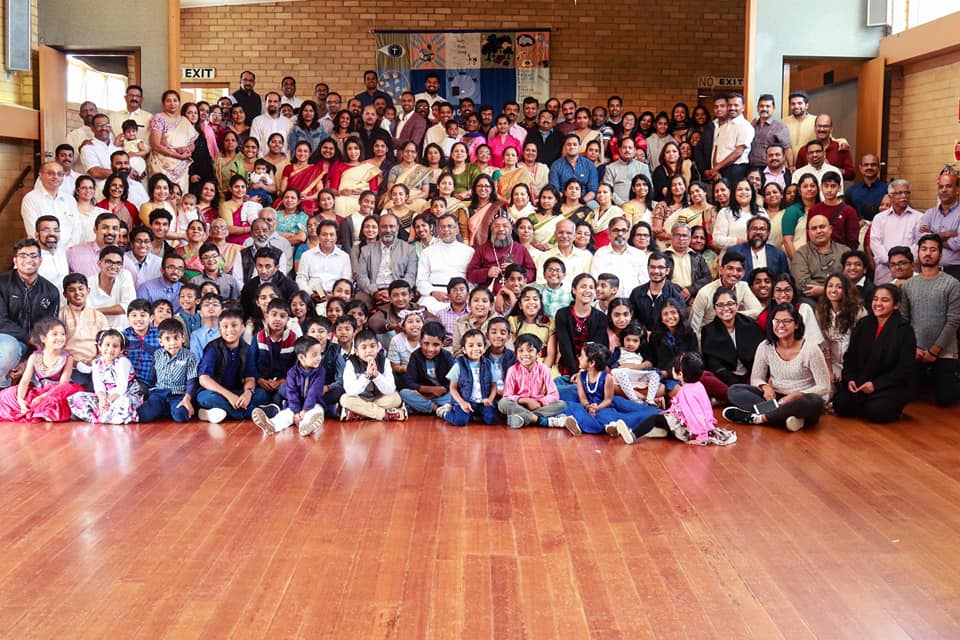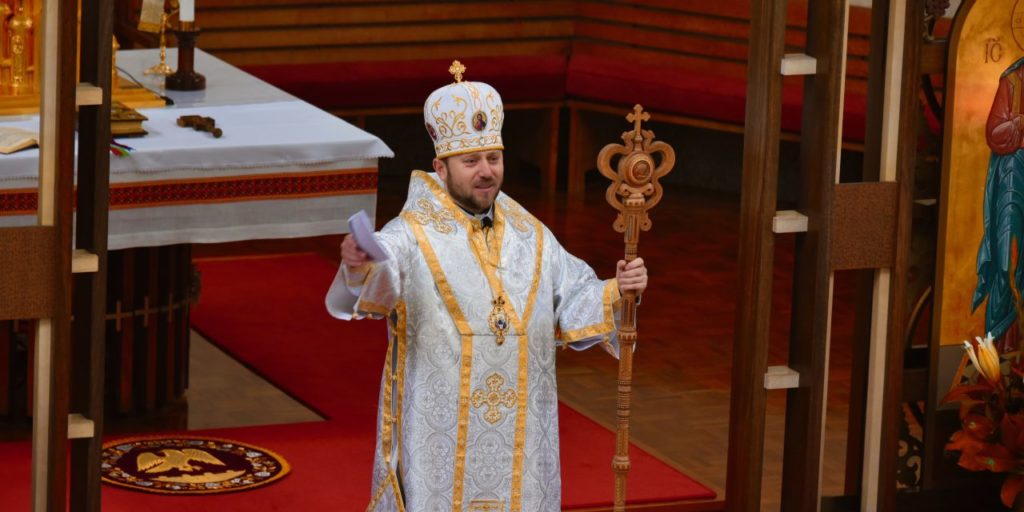
1.12.2022 A pastoral message
(Ukrainian Catholic Church, Melbourne)
«If two of you agree on earth about anything they ask,
it will be done for them by my Father in heaven» (Mt. 18, 19)
Glory be to Jesus Christ,
Dear brothers and sisters,
Prayer should occupy a prominent place in the life of every Christian, in the life of each and every one of us. After all, prayer is a “life-giving breath”. St. John Climacus says that prayer by its very nature is the communication and union of man with God, and by its action it supports the world and unites it with God. “Prayer is our main rule of life. As we pray more often, we progressively bring prayer closer to our daily affairs until prayer becomes one of our main daily activities and all other endeavours are filled with the spirit of prayer” (Catechism UGCC, 700).
Our prayer has varying types and dimensions. The catechism of the UGCC “Christ Our Pascha” teaches four types of prayer: Praise, Thanksgiving, Penitential Prayer and Prayer of Supplication (810-821). In this message, I would like to briefly focus your attention on the last type of prayer – the Prayer of Supplication (prayer of request).
In communication with God, the request occupies an important place. “Sometimes people turn to God in prayer demanding unconditional fulfilment of their desires and needs. True supplication, however, is not a demand, but rather a readiness to accept God’s reply, fully trusting in him. This is because we realise that He always grants us what we need” (Catechism UGCC, 820).
From an early age, we learned to pray privately and ask God for all of our necessities and needs. This is indeed very good, because a personal conversation with God (which our private prayer is) supports us, strengthens u, and is the basis of our relationship with our loving Father.
“The mature prayer of the Christian has two dimensions: liturgical and personal”, however (Catechism UGCC, 668). In addition to our personal prayer, there should always be time set aside for common, liturgical prayer. Common prayer is at the same time a symbol of the common faith of the Church. “For the liturgy, through which the work of our redemption is accomplished, most of all in the divine sacrifice of the Eucharist, is the outstanding means whereby the faithful may express in their lives, and manifest to others, the mystery of Christ and the real nature of the true Church” (Constitution on the Sacred Liturgy, 2).
To date, the understanding of the importance of common prayer during the Divine Liturgy and submission of personal requests (intentions) for prayer has been lost in our Eparchy. Although, speaking to our faithful, this good practice existed from the beginning of the Eparchy.
I would like to point out that every day of the week has its own special significance in the liturgical life of the church: Monday is dedicated to angels; Tuesday – to Saint forerunner John the Baptist; Wednesday – to the Cross and the Theotokos; Thursday – to the apostles and Saint Nicholas; Friday – to the Holy Cross; Saturday – for all the saints and for the deceased, and Sunday – for the resurrection of Christ. Therefore, every day and every Sunday we have the opportunity to add our requests and intentions to prayer during the Liturgy.
Every time we are present in the church at the Divine Service, we are together, praying as a community “for everyone and everything.” All the petitions of our services are directed to the Lord, who “is able to provide [us] with every blessing in abundance, so that [we] may always have enough of everything and may provide in abundance for every good work” (2 Cor. 9, 8).
In addition to general requests and intentions, each of us can submit our personal intention. The Church instituted these different consecrations and blessings according to the needs of the people. The Holy Spirit gives life to the faithful and sanctifies them both in the Holy Mysteries and in diverse blessings and consecrations. In these prayers the Church, like a compassionate Mother caring for her children, whether living or deceased, prays for their salvation. Through these prayers of the Church our vocation to sanctify every aspect of our life – that is, to fill it with the memory of God’s presence in all things and in every place – is realized (Catechism UGCC, 500-501).
Each of the faithful can ask a priest for prayer in a specific intention or blessing for a specific thing. In the temple, we can submit our request for prayer in a special intention to the priest, emphasizing an important event in our personal life, or someone else for whom we would like to order this or some other intention. Such a prayer can be a Divine Liturgy for both the living and the dead, or Moleben or Akathist for the living, or Panakhyda or Parastas for the dead. Therefore, the names of the living or the deceased for commemoration at the Liturgy or other divine services are accepted from all those who want the priest to pray for them.
A special service where we can add our private petitions is a Divine Liturgy. This Divine Service is the peak towards which the Church’s action is directed, and at the same time the source from which all Its power flows. The Divine Liturgy consists of the Proskomide, the Liturgy of the Word; and the Liturgy of the Eucharist. In the Divine Liturgy the mystery of salvation is accomplished. This salvation is the bringing together of God and humankind in Christ, the “building up of the body of Christ” (Catechism UGCC, 345). The petition (intention) of each Divine Liturgy is “[that God] unite all of us, who share in this one bread and cup, with one another into the communion of the one Holy Spirit…” and that the communicants would gain “sobriety of the soul, forgiveness of sins, fellowship of the Holy Spirit, fulfilment of the kingdom of heaven…”.
The Catechism of the UGCC teaches that the faithful participate in the Proskomide (the first part of the Liturgy) by presenting requests for prayers for themselves and for others, and by bringing offerings. Therefore, we must remember that these petitions (intentions) should not be limited only to birthday anniversaries, the anniversaries of the departure of our loved ones to eternity, or in times of extreme need.
I would like to emphasize that the parish priests/administrators every Sunday at the Holy Liturgy have the duty to pray the intention for all the faithful of their parish. This means that it is impossible to pray another intention on Sunday, unless there are several priests in the parish.
In our tradition, every Saturday is dedicated to the memory of all saints and the deceased. Accordingly, on this day, the Liturgy is served with this intention. After the reading of the Holy Gospel, there is a separate litany for the dead, during which a priest prays for our deceased by name. Therefore, we have the opportunity to add the names of the deceased from our families to this prayer. In addition, let’s remember Sorokousty during Great Lent and all other All Souls’ Saturdays, on which we remember in a special way all those who have already passed from this life.
Intention for the living should also have a proper place in our Liturgical prayer. After reading the Holy Gospel at the Liturgy, the priest prays a separate request for the living, mentioning everyone by name. Therefore, we can submit the names of our relatives and friends and the intentions of their needs (for health, for healing, for travel, in a good cause, etc.) every day, since each of us is a unique person whom God calls by name. When we bring and offer to God “all the cares of our life,” we transcend our private lives and enter into a new and ecclesial, comprehensive and universal communion (Catechism UGCC, 353).
Today our monetary donation “for the Liturgy” dates back to ancient times, as the faithful brought bread, wine, oil, incense and various gifts for the Divine Service. These gifts were used for the Liturgy, and other gifts were intended for the needs of the clergy and the relief of the poor. So nowadays, by making our monetary donation, we continue this ancient custom and support our priests in their ministry.
I encourage all our faithful to contact their priests and submit their requests (petitions/intentions) as often as possible. And I kindly ask the priests to remind their faithful about the importance of common prayer in various needs.
The blessing of the Lord be upon you!
+ MYKOLA BYCHOK, CSsR
Eparch of Melbourne
Given in Melbourne, at our Cathedral of the Holy Apostles Peter and Paul,
on the 1st day of December, in the Year of Our Lord 2022,
the Holy Martyrs Platon and Roman.
